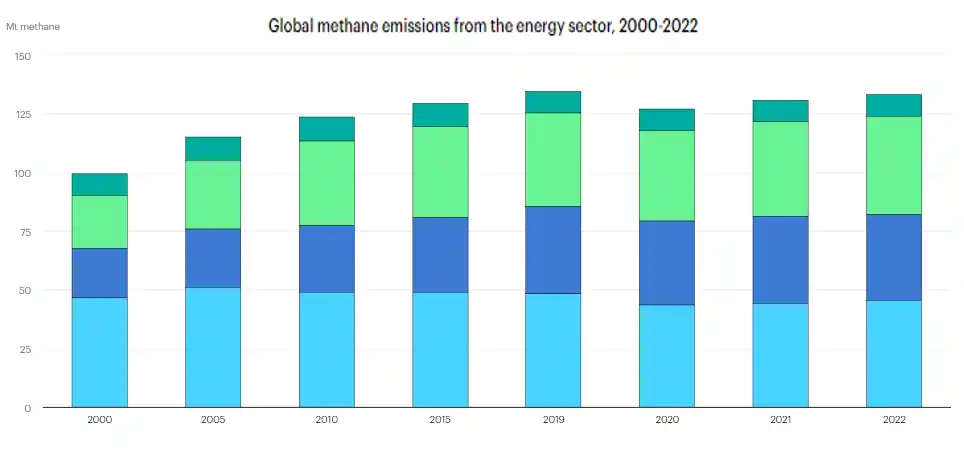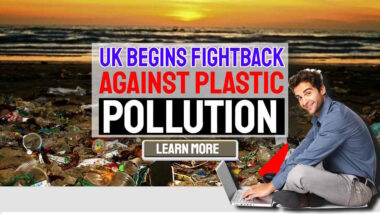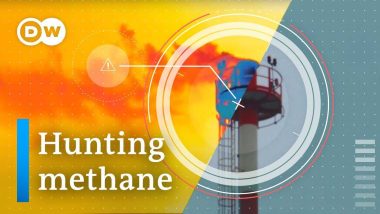Recent studies have shown that cutting methane emissions is crucial in limiting global warming to the internationally agreed goal of 1.5-2 degrees Celsius. This is because methane is a potent greenhouse gas that is estimated to be 28 to 85 times more powerful than carbon dioxide in terms of trapping heat in the Earth’s atmosphere.
Climate tipping points
Climate tipping points, such as the melting of polar ice caps or the release of frozen methane from the ocean floor, can be triggered if global temperatures continue to rise beyond a certain point. This might have disastrous effects such as increasing sea levels, extreme weather occurrences, food and water insecurity, and many more.
To limit these hazards, it is critical to reduce methane emissions in the immediate term while maintaining long-term efforts to reduce carbon dioxide emissions.
This can be accomplished by a variety of strategies, including the capture and use of methane gas at landfills for energy production, the reduction of methane emissions from livestock and agricultural practices, and the repair of ageing natural gas pipelines.
Benefits of cutting methane emissions
The potential benefits of cutting methane emissions are obvious: not only will it help prevent climate tipping points, but it will also improve public health and general community welfare by reducing dangerous air pollutants connected with methane emissions.
In a nutshell, lowering methane emissions is a vital step in limiting global warming and avoiding catastrophic climatic shifts. In order to accomplish our climate targets, we must prioritise measures to reduce methane emissions alongside efforts to reduce carbon dioxide emissions.
International Cooperation Needed to Address Methane Emissions and Climate Change
As the world is grappling with the challenges of climate change, it has become increasingly clear that the international community must come together to address critical issues, such as methane emissions.
Methane is a potent greenhouse gas that is responsible for 20% of global warming, and reducing its emissions is critical to limiting the impacts of climate change. However, addressing the methane challenge requires a global effort, as emissions are not limited to any one country or region.
International cooperation is essential
International cooperation is essential for developing effective policies, sharing best practices, and creating a framework for monitoring and reporting on emissions.
To this end, governments, industry leaders, and civil society must work together to reduce methane emissions. Countries must take responsibility for their own emissions, but they must also collaborate to establish common goals and targets for cutting methane emissions.
Industry leaders must also commit to reducing their methane emissions, and work with governments and other stakeholders to develop innovative solutions.

IEA 2023; Global methane emissions from the energy sector, 2000-2022, URL, License: CC BY 4.0
Furthermore, civil society plays a crucial role in holding governments and the private sector accountable for their actions and advocating for strong climate policies. In conclusion, addressing the methane challenge and combating climate change requires a collaborative and coordinated effort from all stakeholders.
By working together, countries, industry leaders, and civil society can reduce methane emissions, mitigate the impacts of climate change, and build a more sustainable future for all.
Global Efforts to Cut Methane Emissions Fall Short Despite Low-Cost Opportunities, Promising Instrument on the Horizon
Despite relatively low-cost opportunities, worldwide efforts to reduce methane emissions have failed to make significant progress. Methane is one of the most potent greenhouse gases, trapping heat far more efficiently than carbon dioxide.
Methane’s disproportionate impact
With methane’s disproportionate impact on climate change, many countries have set targets to reduce its emissions. However, despite various initiatives to tackle the problem, including improved technology, monitoring, and better agricultural practices, global methane emissions continue to increase.
Fortunately, there is a promising instrument on the horizon that could aid in mitigating the issue of rising methane emissions. The instrument, named the Methane Tracker 2050, has been developed by the International Energy Agency and provides valuable insights into the sources and quantities of methane emissions.
The tool allows identification of areas of most significant impact
The tool allows governments and organizations to identify areas in which they can make the most significant impact and prioritize accordingly. By implementing more targeted efforts, it is hoped that the Methane Tracker 2050 can help reduce overall methane emissions and improve progress towards international targets.
It is essential for countries to act quickly and collaboratively to address the increase in methane emissions and prevent further exacerbation of the climate crisis.
The Methane Tracker 2050 is a promising step towards better understanding and managing methane emissions and is a tool that can help global efforts to reduce greenhouse gases.

Introducing Methane Fees and Feebates could Effectively Reduce Emissions and Limit Competitiveness Concerns
A recent report has suggested that introducing methane fees and feebates could be an effective strategy for reducing emissions and mitigating concerns about competitiveness.
Methane is a powerful greenhouse gas that is emitted during the production of oil and gas, as well as from livestock and agriculture. Methane fees would impose a charge on entities that emit the gas, while feebates would offer incentives to those who reduce their emissions.
Would create a level playing field
The report argues that these policies would create a level playing field and encourage companies to reduce their methane emissions, which would help to limit global warming. The authors of the report acknowledge that there are concerns about the impact of these policies on competitiveness.
However, they argue that well-designed policies could mitigate these concerns by ensuring that they are applied equally to all actors in a particular sector.
They also point to the co-benefits of cutting methane emissions, such as improved air quality and reduced health impacts.
Overall, the report provides a promising framework for addressing one of the most pressing challenges facing the global community today. By tackling methane emissions through policies such as feebates and methane fees, policymakers can help to limit global warming and protect the health and well-being of future generations.
Efficient Conversion of Sewage to Biogas: Advancing Waste Treatment for Sustainable Energy Generation
Read on to learn about advancing foul waste treatment, for sustainable energy generation through the efficient conversion of sewage solids to biogas. When we talk about waste, it can seem like a dirty subject. But what if we could turn that waste into something useful? Imagine the mucky water and sludge from our toilets and […]
The Importance of Carbon Removals in Achieving Net Zero
Carbon removals being the opposite of carbon emissions will be a significant contributor to the effort to reduce the worst effects of climate change and global warming. While reducing emissions is crucial, it is not enough to achieve the goal of net zero by 2050. Active removal of carbon from the atmosphere is necessary. Of […]
US Falling Short on Methane Emissions Reduction Commitments from Landfills: Report
The United States is failing to uphold its commitment to reducing methane emissions from landfills, a promise it made at the Glasgow 2022 Climate Change Conference, according to a new study. The United Nations Framework Convention on Climate Change (UNFCCC) has identified this issue as an easily achievable solution for mitigating climate change within the […]
UK Begins Fightback Against Plastic Pollution: Dramatic 2040 Deadline Set for a Cleaner Future
The UK government has signed a Ministerial Statement calling for an ambitious global plastic pollution treaty to tackle plastic pollution and protect the marine environment. A plastic pollution treaty is sought for: including a reduction in single-use plastics, the improvement of waste management and recycling systems, and the promotion of sustainable and circular economy models. […]








